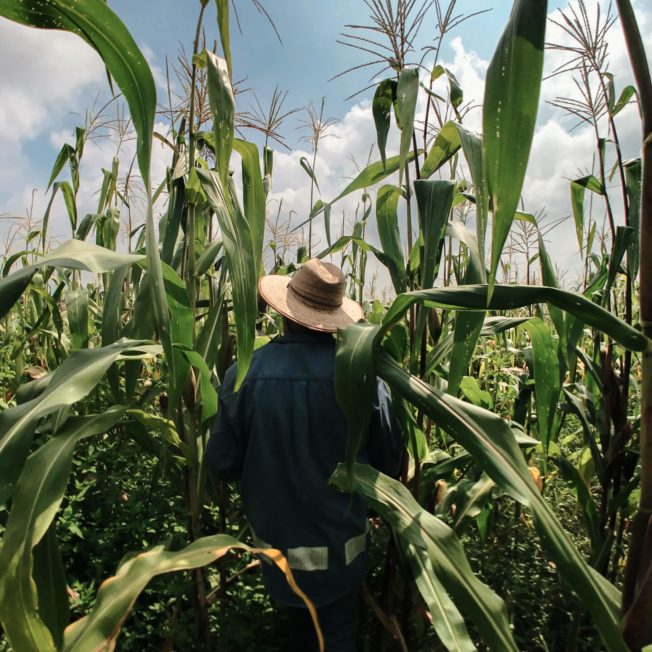Before the American Civil War, the Lower Mississippi Delta was developed into one of the richest cotton-growing areas in the country. Today, the region spans seven states, comprising 219 counties, and is home to 8.3 million people, a majority of which are Black.
The Delta has a deep-rooted history of slavery including Jim Crow laws, political disenfranchisement of the Black community, a near-total social segregation at times, and a concentration of wealth in the hands of the white population, which are at a minority. Among those include the sharecropping system, which came after the Civil War when formerly enslaved people sought jobs and has ultimately been referred to as “slavery under another name.”
Throughout history, Black farmers have struggled to own land. Whether fighting against diminished civil rights or getting past socioeconomic barriers, the path to operating independently was not an easy road to travel. Even still, throughout the last century, Black farmers were able to pave their way, creating cooperatives, unions, and farmer associations to maintain independent farming ventures.
Around ten years ago, things began to shift in the Delta as white South Africans flew into the country on special guest worker visas and were trained by local Black farmers.
What’s happening in agriculture today
A group of Black farmworkers in the Delta region filed a federal lawsuit against Pitts Farm Partnership. The New York Times reported that Wesley Reed, Gregory Strong, Richard Strong, Andrew Johnson, Stacy Griffin, and James Sompson alleged that they were displaced, claiming that the new workers–white foreign workers from South Africa–were paid illegally at higher rates than the Black local workers.
In the suit, it said that during a six-year period from 2014 to 2020, the plaintiffs performed and were assigned tasks that were described in Pitts Farm Partnership’s H-2A applications during that period of time. These tasks included tasks such as mixing chemicals or driving heavy machinery. Even if those tasks weren’t listed in the applications, they were ultimately performed by the farm’s H-2A employees. Reed, Gregory Strong, Richard Strong, and Griffin were all tasked with the additional responsibility of training the white foreign hires for those activities, in addition to others.
Soon, those same foreign farmers would be recruited by growers globally, and at a higher rate than Strong and, fellow local Black farmers were compensated for their duties. As each year went on, more and more of the South African trainees overtook local jobs, leaving farmers, much like Strong, out of work
The plaintiffs also alleged that the Black workers were subjected to things like racial slurs and demeaning treatment from a white supervisor. In addition, two more plaintiffs are getting ready to join the lawsuit as well. They claim that farmers violated civil rights law by hiring solely white workers from South Africa specifically, noting the country’s history of racial injustice.
Diving deeper into the agricultural guest worker program
In the United States, it’s becoming increasingly more common for farms nationwide to employ foreign workers, due to the aging of current farmers and many workers turning to hospitality, warehouse, and construction jobs. In agriculture, this has been made possible by H-2A, the agricultural guest worker program. Though previously it was not utilized by farmers, due to shortages for farm labor decreased nationwide, H-2A visas have increased 285% from 2011 to 2020.
Through the program, growers can hire foreign workers for up to 10 months, paying them an hourly wage set by the Labor Department. This rate will vary from state to state, in addition to their housing and transportation. However, to hire foreigners through this program, they have to show proof that they have tried but failed, to find Americans to do the same work. Domestic workers also need to be paid the same rate as foreign workers.
Therein lies the problem with the issue occurring within the Delta region. Allegedly, according to the lawsuit, Pitt Farms paid the South African laborers $9.87 an hour in 2014, which increased to $11.83, in 2020. However, the plaintiffs were paid the federal minimum wage of $7.25, with the rate of $8.25 for weekends, and occasional bonuses.
Racial disparities in farming
Despite the overall growth of the agriculture economy, the share of Black farmers in the United States has steadily declined over the last century. A report from McKinsey & Company shows that today, 1.4% of farmers identify as Black or mixed race compared to 14% a century ago. To address the racial disparities in farming to generate an increase in both economic and social value, it’s important to increase Black representation in farming in addition to creating equality in farm performance.
The decline in Black-owned farms in the United States has been caused by various factors over the centuries. In the past, federal programs and policies that were put in place by the government excluded Black people from purchasing land. In addition, there was a lack of legal protections to help facilitate the transfer of property onto the next generation, as well as limited access to capital. All together, centuries upon centuries of exclusion has erased any opportunity of creating generational wealth.
Challenges Black farmers face
To be able to move forward to improve the inequality in agriculture, understanding the challenges and barriers that Black farmers face in America today is key. Beyond the centuries-old laws that served as a roadblock to creating generational wealth, some challenges exist within the system today that affect not only current but also aspiring farmers.
To begin, on a socio-cultural level, for centuries, there has been a lack of access to opportunities to access certain resources. Even the United States Department of Agriculture has recognized the discrimination against Black farmers in history. It’s important, too, to acknowledge the economic factors that hinder the potential growth of Black farmers due to the lack of proper resources, which include land, capital, and access to credit and business services.
When it comes to education, the access to the types of classes and courses to gain the necessary knowledge to pursue agriculture can be low. Black colleges and universities historically don’t receive the necessary funding for agricultural programs, which hinders the potential for aspiring Black farmers to learn their craft and become educated on the topic. All of these feed into the institutional lack of access, and participation in USDA and other programs to be able to have the same awareness of the agriculture industry as their counterparts.




















